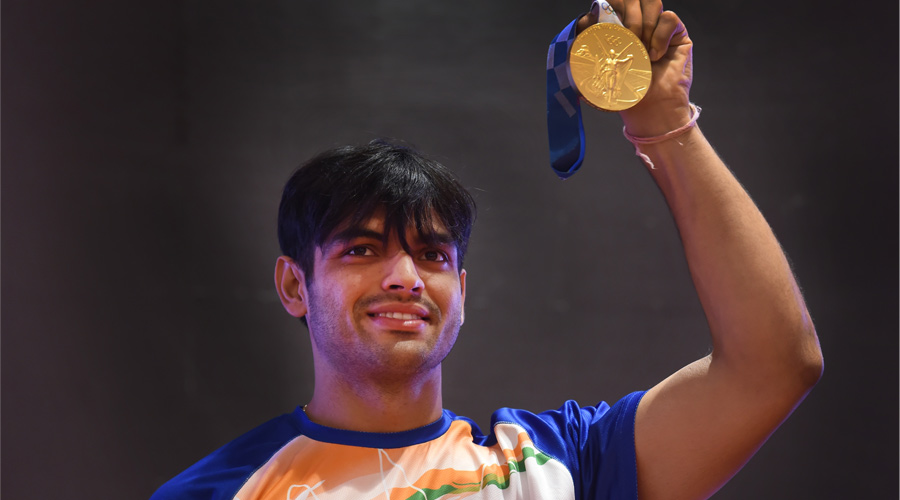Andrew Hoy is 62 and an Olympian. The Australian was Tokyo’s oldest medallist, earning a silver and a bronze in equestrianism.
Martine Grael and Kahena Kunze of Brazil won gold in the 49er FX competition and broke the boat soon after. The duo decided to sail toward friends on the shoreline, encountered shallow water and rocks and broke the mast during manoeuvring.
And Neeraj Chopra captured a gold in javelin and with it the imagination of 1.36 billion Indians.
Moments like these and numerous other magical ones abounded at the Tokyo Olympics — a Games which were given very little chance of initially taking off and then of being an absolute disaster from the point of view of health.
Belying all misgivings, the Games succeeded and were quite the “the light at the end of this dark tunnel the whole world is going through”, as International Olympic Committee president Thomas Bach had said the Games were intended to be.
For athletes, these were an Olympics of survival, of resilience, of getting by and sometimes being okay with falling short of a target. For some like gymnast Simone Biles it was confronting her mental health problems. For supermoms like Faith Kipyegon, Laura Kenny, Helen Glover and Allyson Felix this was life-affirming stuff.
The tournament offered viewers an escape from the frustration and tragedy of the past 18 months. The drama of competition and stories of rousing sportsmanship offered diversion from the daily counts of coronavirus cases.
From the Indian perspective, how was the Tokyo experience?
“There were plenty of restrictions, daily Covid-19 testing, no permission to step out of the Games Village and anti-Games protests by the residents of Japan,” India’s chef de mission Biren Baishya told The Telegraph from New Delhi after his return.
“But it was only natural that Japan had to be strict with all Covid-19-related protocols in order to host an event of such magnitude under the prevailing conditions.
“Under such circumstances, I have to compliment the Japanese Organising Committee for a job well done and making the Games a success,” he said.
“And from the Indian perspective, Neeraj’s gold, overall seven medals, Aditi Ashok and the women’s hockey team’s performances despite narrowly missing out on a medal, and the fact that not one from the Indian contingent tested positive — not a player, coach or official — sums up a very satisfactory Games.’’
Paddler Sathiyan Gnanasekaran echoes the same: “The Games were a huge, huge success.…Having so many athletes and officials together, tests for everybody… it was a Herculean effort, no less.
“But it was so well organised, the food was great, all arrangements for the Covid-19 tests were done so seamlessly, the training venues, the match venues were all superlative. I shared amazing vibes with the athletes — Indians and international.
“After a long time the world united in celebration of a festival. All Indians came together celebrating the success of its athletes and encouraging those who failed to get a medal…I saw India as a unit, a family.”
Sathiyan’s enduring memory of the Games would be meeting Novak Djokovic.
“It sure was my fan boy moment,” said the Olympic debutant.
The bill for the Tokyo Olympics and Paralympics is expected to be 1.64 trillion yen ($15 billion), 22 per cent higher than it was before the Games were delayed in 2020.
That figure is also twice as much as the 800 billion yen estimate Tokyo submitted in its bid to host the Games.
Though the lasting effects of the Olympics on Japan will be clearer in the weeks to come, early signs indicate the health protocols have worked.
According to reports, 571,000 screening tests had been performed at the Games, returning a positivity rate of just 0.02 per cent.
“If it had not been for the pandemic, this would go right up near the top of the best organised Olympics,” said Olympic historian David Wallechinsky, who was attending his 19th Games.
Written with inputs from New York Times News Service and Reuters










